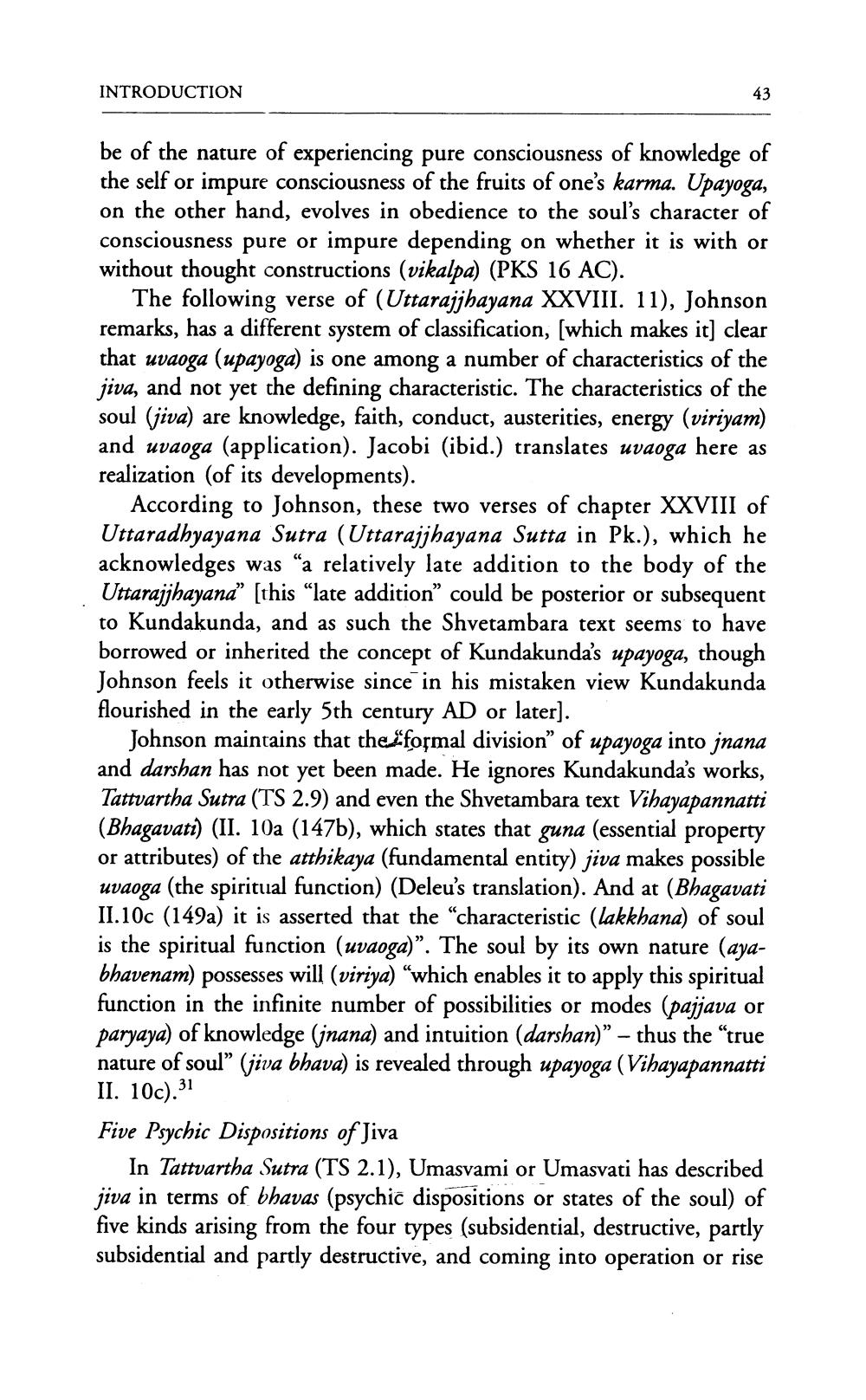________________
INTRODUCTION
43
be of the nature of experiencing pure consciousness of knowledge of the self or impure consciousness of the fruits of one's karma. Upayoga, on the other hand, evolves in obedience to the soul's character of consciousness pure or impure depending on whether it is with or without thought constructions (vikalpa) (PKS 16 AC).
The following verse of (Uttarajjhayana XXVIII. 11), Johnson remarks, has a different system of classification, (which makes it] clear that uvaoga (upayoga) is one among a number of characteristics of the jiva, and not yet the defining characteristic. The characteristics of the soul (jiva) are knowledge, faith, conduct, austerities, energy (viriyam) and uvaoga (application). Jacobi (ibid.) translates uvaoga here as realization (of its developments).
According to Johnson, these two verses of chapter XXVIII of Uttaradhyayana Sutra (Uttarajjhayana Sutta in Pk.), which he acknowledges was “a relatively late addition to the body of the Uttarajjhayana” [this “late addition” could be posterior or subsequent to Kundakunda, and as such the Shvetambara text seems to have borrowed or inherited the concept of Kundakunda's upayoga, though Johnson feels it otherwise since in his mistaken view Kundakunda flourished in the early 5th century AD or later).
Johnson maintains that the formal division” of upayoga into jnana and darshan has not yet been made. He ignores Kundakunda's works, Tattvartha Sutra (TS 2.9) and even the Shvetambara text Vihayapannatti (Bhagavati) (II. 10a (147b), which states that guna (essential property or attributes) of the atthikaya (fundamental entity) jiva makes possible uvaoga (the spiritual function) (Deleu's translation). And at (Bhagavati II.10c (149a) it is asserted that the "characteristic (lakkhana) of soul is the spiritual function (uvaoga)”. The soul by its own nature (ayabhavenam) possesses will (viriya) “which enables it to apply this spiritual function in the infinite number of possibilities or modes (pajjava or paryaya) of knowledge (jnana) and intuition (darshan)” – thus the “true nature of soul” (jiva bhava) is revealed through upayoga (Vihayapannatti II. 10c).31 Five Psychic Dispositions of Jiva
In Tattvartha Sutra (TS 2.1), Umasvami or Umasvati has described jiva in terms of bhavas (psychic dispositions or states of the soul) of five kinds arising from the four types (subsidential, destructive, partly subsidential and partly destructive, and coming into operation or rise




